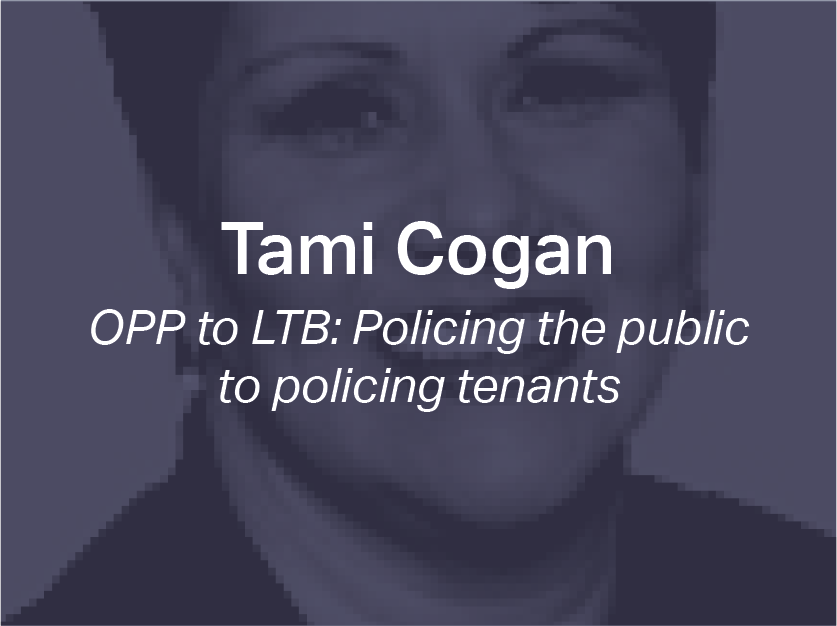
Have an eviction hearing?
Reach out to your neighbours and add your eviction details to the COVID-19 Eviction Tracker.
Attacking Transparency:
Ontario’s New Bill 276
In late April 2021, the Ontario government introduced Bill 276, the Supporting Recovery and Competitiveness Act. Buried in the bill was an amendment to the Statutory Powers Procedure Act which sets fines of up to $25,000 for the recording and sharing of online tribunal hearing proceedings. As the Ontario Landlord and Tenant Board continues to churn out hundreds of eviction orders each week, the government moved to eliminate exposure of mass evictions by targeting tenant organizers with massive fines.
Since the government moved Landlord and Tenant Board hearings online and effectively behind closed doors, working class people have organized to challenge and expose the increasingly secretive eviction process. In response, the LTB has ordered evictions against hundreds of tenants without them being present in as little as 60 seconds, obstructed tenants from obtaining legal advice from Tenant Duty Counsel lawyers, forced tenants’ children to act as interpreters at their own eviction hearings, and booted dozens of observers from its virtual hearing rooms.
In November, December and January, the Ontario Landlord and Tenant Board held more than 13,000 eviction hearings. Adjudicator Dale Whitmore called it a “blitz.”
This information is based on the 3,500 scheduled Landlord Tenant Board hearings in Toronto from Nov. 2, 2020 to Jan. 31, 2021. While some of these hearings were filed pre-pandemic, many of these hearings were used to order evictions against tenants who fell behind on rent during the COVID crisis. The LTB does not keep track of how many evictions it orders nor how many of those result in eviction enforcement, so this was the most accurate way to track COVID evictions. Landlord information was sourced through the most up-date information available to the public. Final tallies may not reflect all cases where smaller holding companies are owned by larger conglomerates, and may not reflect a recent change in ownership. To find evictions in your own neighbourhood, zoom in with the +/- bar on the map. To see landlord information and the number of eviction hearings scheduled at an address, click on the individual pins. The information will pull up on the left-hand side.
The Landlord and Tenant Board is an eviction factory.
Learn more about the adjudicators who order these evictions.
Every year, at least 90% of applications made to the LTB are from landlords.
And the vast majority of landlord applications are for evictions due to rent arrears.
"Having to deal with the hearing was very stressing for me and my partner, because we are new in this country and we didn’t know what to expect from it, we really couldn’t sleep thinking about what was going to happen.”
“You can’t get a straight answer from the LTB. Even when I sent my forms by registered mail and got confirmation from Canada Post that it was delivered, the LTB still said they lost my mail. Instead of retrieving a document they had on file or even asking me to provide it, the adjudicator dismissed my application without even giving me a chance to present my case at a hearing.”
— Tenants at the LTB
Even when a tenant is dead, the eviction factory carries on.
In this video, adjudicator Khalid Akram keeps the eviction factory churning, even against dead tenants. In a Kafkaesque manner, he disregards the landlord saying that the tenant has already died, and asks if the tenant is on the line to proceed with the hearing.

Are you facing eviction? You’re not alone.
Add your eviction details to the Toronto COVID-19 Eviction Tracker to connect with your neighbours. Evictions can be stopped if we are organized and prepared to defend our neighbours at every step of the eviction process.












